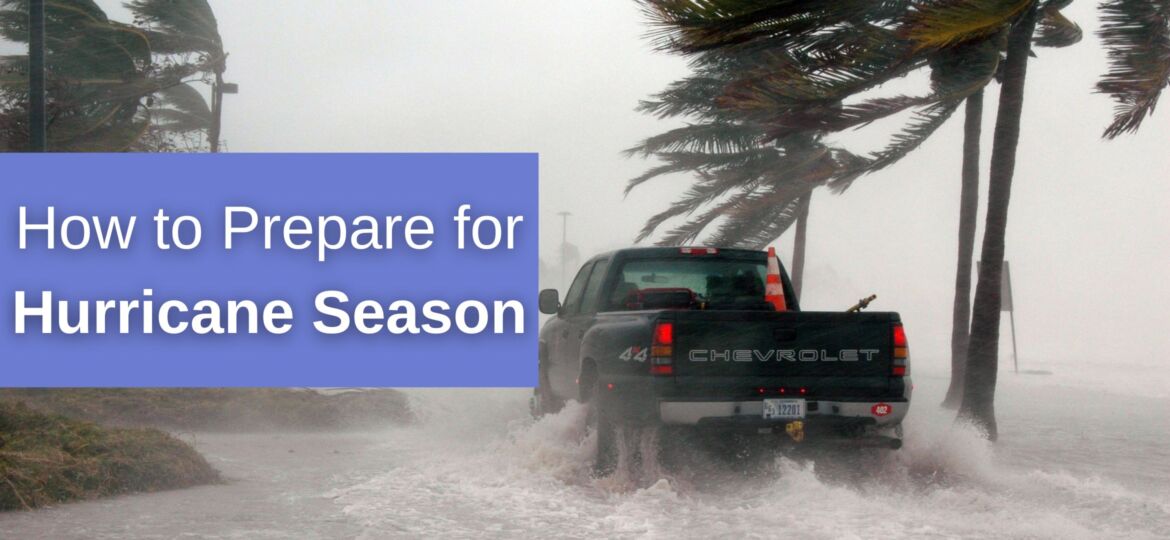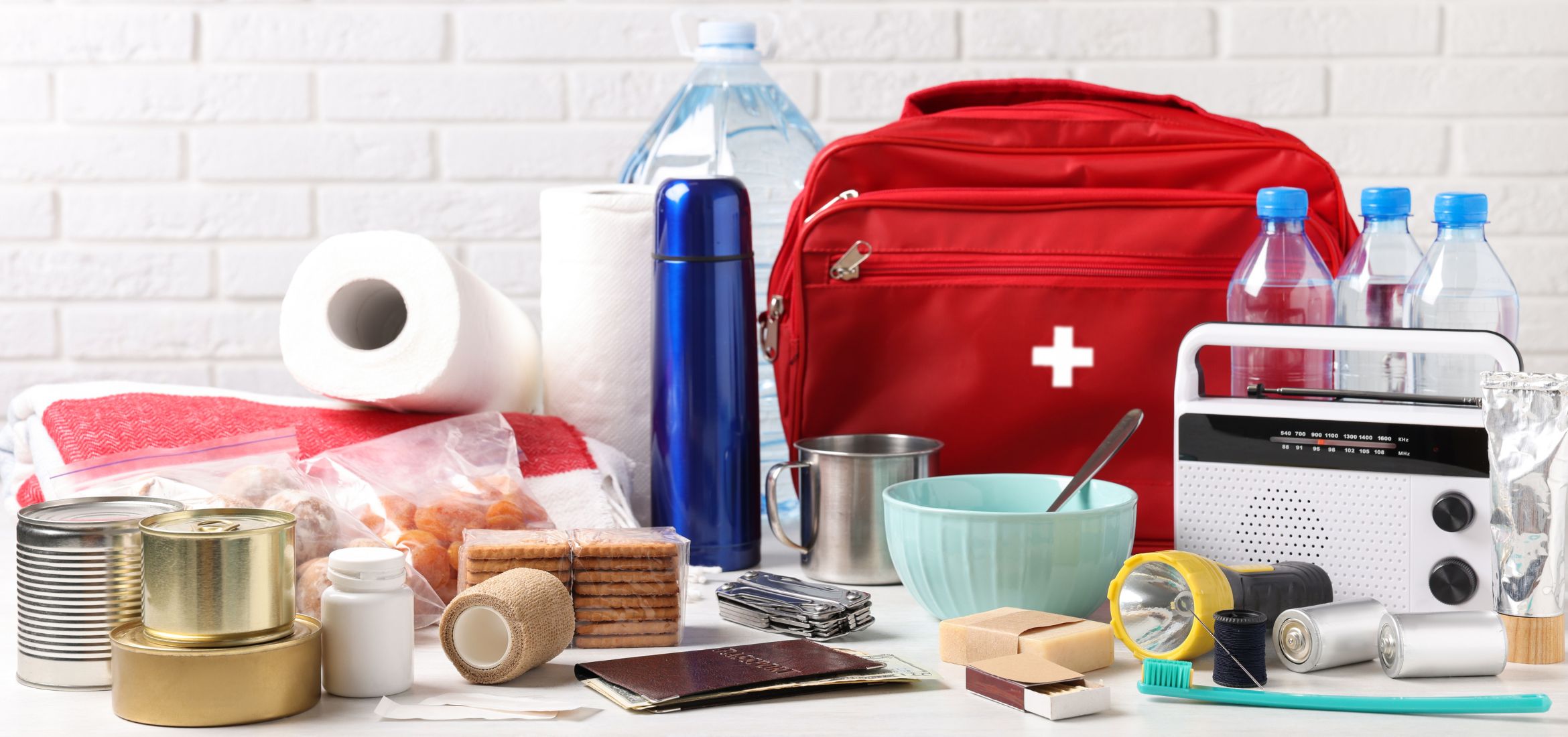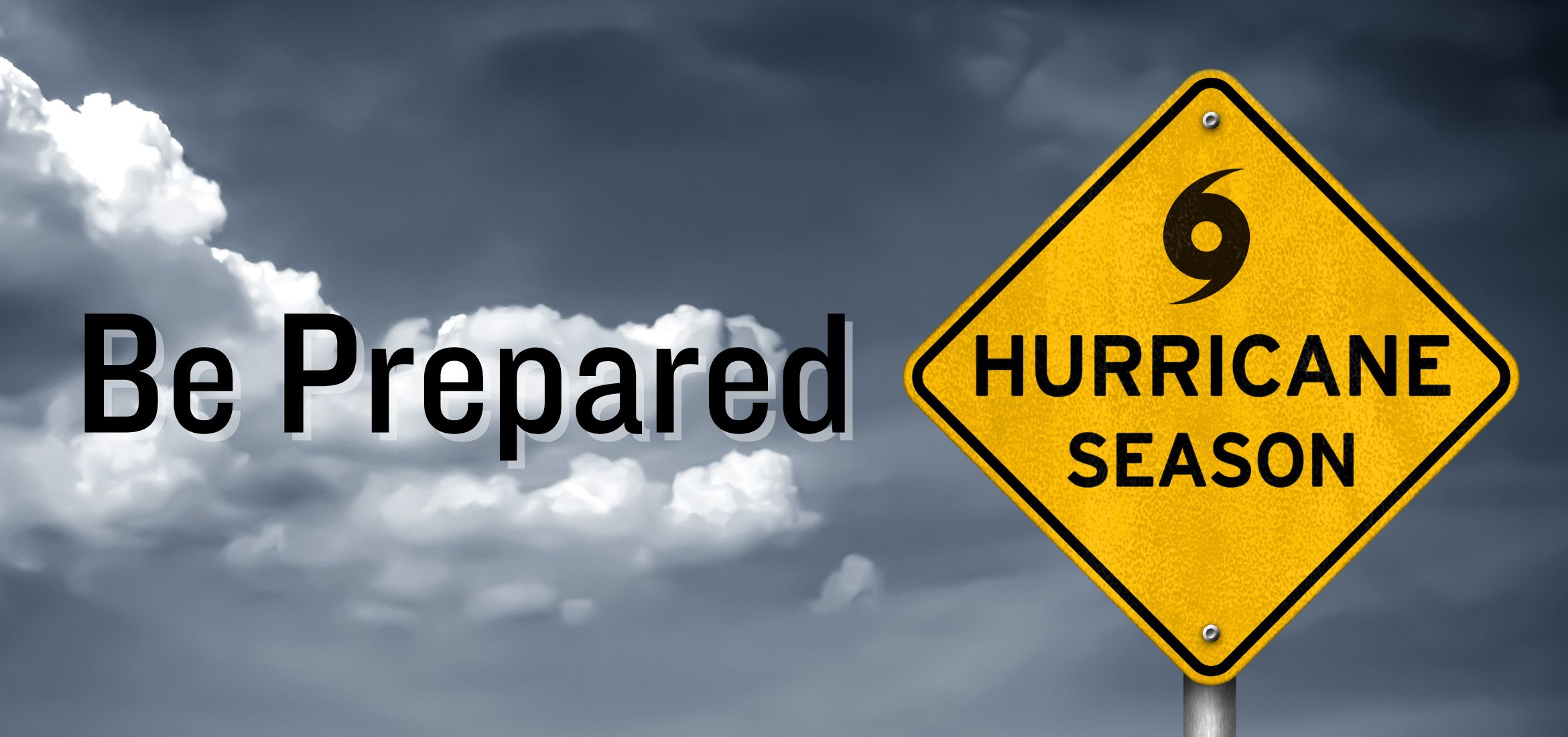
Hurricanes are forces of nature that should not be taken lightly. They damage property, flood cities, and take lives. Sometimes those of us who grew up around hurricanes can be the worst offenders at not being safe.
We think, “it’s gonna be fine” or “this one won’t be that bad.” The problem is that you never really know. Failing to have a plan and take hurricane season seriously if a mistake no resident should make.
So to help you plan and keep you and your family safe, here are some things you can do to prepare for hurricane season.
Create a plan
The hurricane season begins on June 1st in the Atlantic, and May 15th in the North Pacific. The season ends on November 30, each year. Make sure that you and your family have a plan in place before hurricane season every year.
- Keep emergency phone numbers in a visible place, such as on your refrigerator or by all phones. You can also program them into your mobile phone.
- Prepare an Emergency Supply Kit.
- Find the closest shelter to your home and explore different routes that you can take. If the shelters in your area are not identified, find out how to locate them during a storm.
- Owners of pets: Identify shelters or hotels that accept pets, or a friend or relative who lives out of town where you can evacuate your pet. Animal shelters in your area may have advice about what to do if your house is evacuated.
Prepare emergency supplies
You may need after and during a hurricane to keep you and your family healthy and safe. A hurricane can cut off power and water. Your car may also be damaged, making it impossible to drive. The roads may be blocked or flooded.
Stock up on all the things you may need. Prepare the following:
- An emergency food and water supply.
- An emergency medicine supply.
- Flashlights and other emergency power sources (don’t forget extra batteries) are good examples.
- Personal items and safety.
- Important Documents including medical documents (wills), passports and personal identification documents.
- A fire extinguisher. It is important that your family know where it is and how to use. Use the tips from the National Fire Protection Association for fire extinguishers.
Understand the difference between a hurricane “watch” and “warning”
You can also check online for alerts. Alerts can be of two types:
- A Hurricane Watch indicates that hurricane conditions (continuous winds exceeding 74 miles per hours [mph]) are likely in a specified area. Experts issue hurricane watches 48-hours before they expect tropical storm-force winds to begin (sustained wind speeds of 39-73 mph).
- A Hurricane Warning is a more serious warning. This means that hurricane-force wind is expected within a specified area. These warnings are issued by experts 36 hours in advance of the expected arrival of tropical storm-force winds to allow people to prepare.
For more information on hurricane warnings and watches, visit the National Weather Service Hurricane Center. You can prepare yourself if you are informed that a hurricane warning or watch is in effect for your area.
Prepare your car
Be sure to prepare your vehicle before a storm.
- Gas up your car.
- Place cars and trucks in your garage or shelter.
- Keep an emergency kit in the car.
- Visit ready.gov to learn how to prepare your vehicle and what you should include in your emergency kit.
You can call the authorities for a ride or make plans with family and friends if you don’t have a vehicle.
Prepare your family and pets
- Your family should review your plan in case of an emergency.
- Check back often for the latest updates. Listen to the radio or TV or check online.
- Contact the hospital, the public health department or the police to discuss special needs. Get advice if you or someone close to you is elderly or disabled, and will not be able leave quickly.
- Place farm animals and pets in a secure place. Learn more about pet security during an emergency.
Prepare your home
- Clear your yard. Clear your yard. Move bicycles, lawn furniture and grills inside or under the shelter.
- Cover windows and doors. Protect your windows with storm shutters, or by nailing plywood pieces to the frames. You can protect yourself from shattered pieces of glass by using this method.
- If you see flooding, downed power lines or need to leave your home, turn off the electricity. Switch off your electricity if you notice flooding, power lines that are down, or if you need to leave the house.
- Fill clean containers up with drinking water. This is important in the event that you lose water during a storm. You can fill your bathtubs and sinks with water to wash in.
- Check the battery of your CO detector to avoid CO poisoning.
- It may also be wise to have a copy of your homeowners insurance policy just in case you need to reference it and there is no internet or electricity.
Prepare to evacuate or remain at home
Listen to the authorities when they tell you whether or not you need to evacuate.
You may be told to leave your home by authorities if a hurricane is approaching. Do not ignore an evacuation order. Even well-built, sturdy houses can’t withstand a hurricane. It is not worth putting your health at risk to stay home and protect your property.
Stay at home if you hear someone telling you to. Staying at home is safer than going out if driving conditions are hazardous.
If you need an evacuation:
- Take your emergency kit with you and only bring what you need (such as a cell phone, chargers for it, medicine, identification such as a passport, license or driver’s license, and money).
- Unplug all your appliances. Turn off gas, electricity and water if you have the time.
- Even if traffic is present, follow the directions of emergency workers. Some routes may be closed or flooded. Do not drive through areas that are flooded. Cars, trucks and other vehicles may be swept or stall out in only 6 inches of water.
- Ask your local emergency management office if it offers accommodations for pet owners. Find out more about evacuating your pet.
Stay at home if you must
- Store your emergency kit somewhere you can easily reach it.
- Listen to radio or television for the latest updates about the hurricane.
- Stay indoors. Do not go outside, even if the weather looks calm. You should wait until the official announcement that the hurricane has passed. Sometimes the weather calms down in the middle of storms, but quickly turns bad again.
- Avoid windows during storms. You could be injured by flying glass or broken pieces. Go into a room without windows or a closet.
- Prepare to leave. You may have to move to a neighbor or a shelter if you are ordered to leave by emergency authorities or your home has been damaged.



